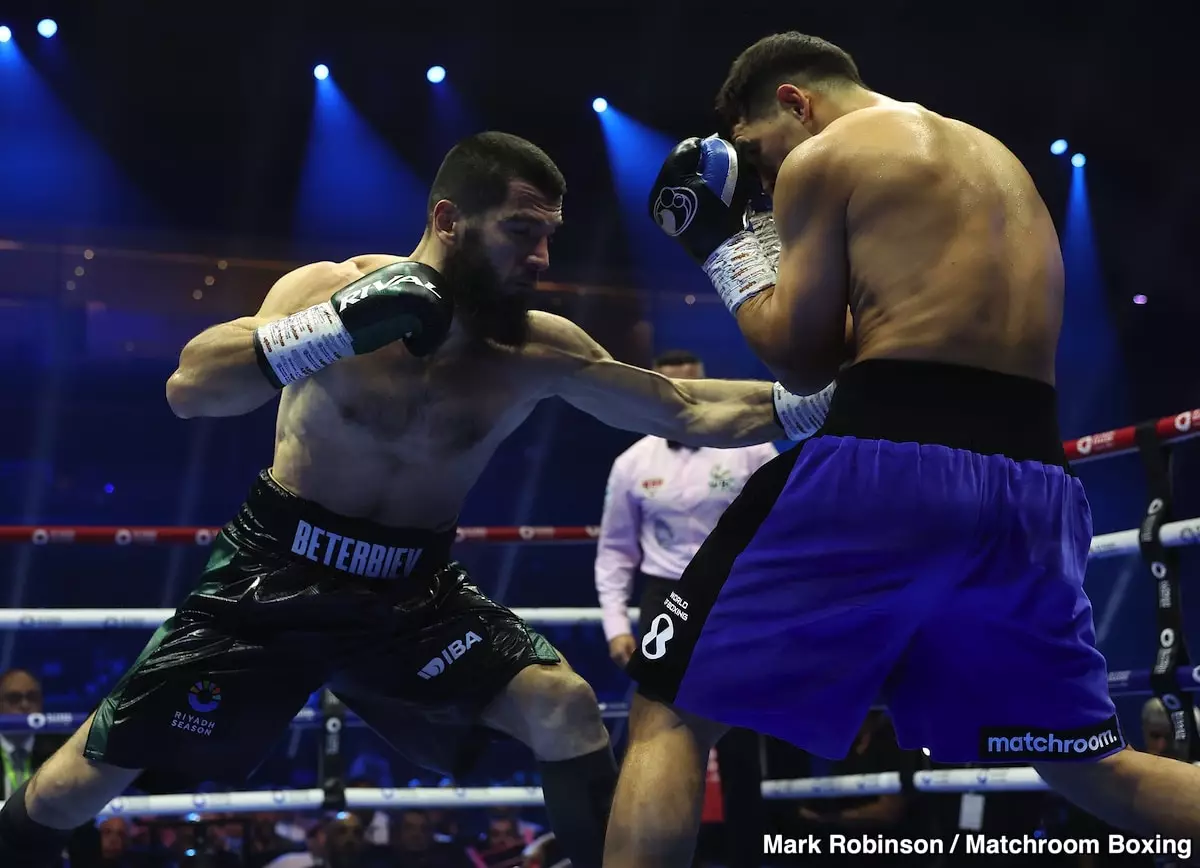In the ruthless arena of professional boxing, strategies often dictate the fates of fighters as much as their skill sets. One particularly contentious strategy is the concept of “aging out” an opponent — waiting for them to grow older, slower, and ultimately more vulnerable before challenging them. Sergio Mora, a former champion and now a boxing commentator, recently weighed in on this practice in relation to David Benavidez’s anticipated fight against Artur Beterbiev, the undisputed light heavyweight champion. As Beterbiev nears his 40th birthday, Mora’s analysis sparks a wider debate about ethics, preparation, and the unpredictable nature of boxing dynamics.
Boxing is often characterized as a young man’s sport, where speed, agility, and reflexes are critical. As athletes reach their late thirties, these attributes typically begin to wane, making them targets for younger challengers who are keen to establish their dominance. Mora’s suggestion that Benavidez should allow Beterbiev to age further before facing him raises questions about the integrity of the sport. While some may argue that “aging out” an opponent is a savvy tactical move, critics would contend that it reflects a lack of confidence or respect for one’s abilities. Should fighters; like Benavidez, feel compelled to step into the ring with opponents based on age rather than ability?
For Beterbiev, whose record of 21 wins, with 20 knockouts, speaks volumes about his power and skill, Mora paints a picture of a dangerous adversary whose style thrives on close-range combat. This brings forth the dilemma for Benavidez as he considers his readiness to take on such a formidable challenger. Is it wise to wait and play the long game? Or does taking on a prime competitor head-on serve as a more honorable approach that might ultimately enhance one’s legacy?
Benavidez’s record of 29 wins and 24 KOs suggests that he is a force to be reckoned with in the boxing world. However, the two-year wait to face David Morrell illustrates the ongoing debate regarding calculated risks in boxing decisions. Some fighters elect to bide their time, building their reputations and financial stability before facing a dangerous opponent. In contrast, others may dive straight into fights that could define or destroy their careers.
By potentially waiting for Beterbiev to decline in performance due to age, Benavidez might find himself in a position that could be deemed preferable for securing a win. Nonetheless, this strategy invites skepticism: is enduring a protracted wait truly justifiable? The stagnation might inhibit Benavidez’s growth as a fighter, and there is also the risk that Beterbiev could continue proving himself as a top athlete well into his forties.
At the heart of Mora’s comments lies an ethical discourse about what it means to be a competitor. Professional athletes are often heralded for their courage to face challenges head-on, yet a strategy rooted in timing and manipulation of an opponent’s age can seem disingenuous. Should the boxing community support a culture where fighters intentionally allow age to alter their matchups? This question strikes at the core of competitive sports — is it more admirable to challenge oneself against foes in their prime, regardless of the risks involved?
Mora makes an interesting point that establishing a genuine reputation often involves facing— and beating— the best. He implies that Benavidez’s legacy could be tarnished if along the line he relied on external factors like age to secure victories. Indeed, every fighter aims for greatness and a place in history, but how these athletes choose to carve their paths could either elevate or diminish their standing within the boxing lore.
As the boxing world anticipates potential matchups, the future for Benavidez and Beterbiev remains framed within this age-old strategy of “aging out.” With Beterbiev’s forthcoming 40th birthday presenting a pivotal moment, it presents not just a challenge in the ring but also a broader conversation about integrity, strategy, and the true spirit of competition. Whether Benavidez opts to fight soon or waits for age to tip the balance in his favor, the implications of his decisions will echo through boxing history and shape perceptions of what it truly means to be a champion.

